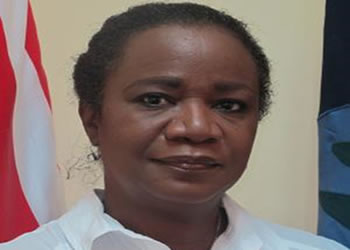For Efficiency, Legislature Must Have Committee Staff


Committees have crucial roles to play in the day-to-day functioning of the legislature. In parliamentary/democratic societies, among its many functions, the primary role of Committees in the legislative process is [should be] to thoroughly examine the bills assigned to them and recommend if the bills should become law. That is why when a few lawmakers appearing on radio shows in Monrovia attributed the holding of fewer committee meetings to the absence of permanent Committee staff, a cross section of the public were taken aback.
Given the public’s perception [from radio programs] about “lawmakers and money,” it is not a surprise that a segment of the public expressed bewilderment that lawmakers at the Capitol could complain about lack of budget to hire permanent committee staff. Yet still, a few persons wondered how a legislature can function efficiently without permanent committee staff, or the holding of regular Committee Meetings.
The lawmakers appeared recently on UNMIL’s [Sayo Wahtoson] Consumer Affairs and Palava Hut Shows, and on Fabric’s to discuss the LEMTAIL’s report, which illustrated that the Legislature was having fewer committee meetings. LEMTAIL is a project that is spearheaded by the National Integrity Mandate Area of the Governance Commission, and it is called the Legislative Monitoring for Transparency and Accountability. The aim of the project is to promote transparency, accountability and national integrity in Liberia.
Honorable Josephine Francis, Byron Brown, George Mulbah said though they had Committee Meetings, but the lack of permanent Committee Staff was hindering their work; it made the work “overwhelming.” LEMTAIL’s report highlighted that in comparison to Committee Meetings, the legislature were having more Executive meetings/Secret sessions. The recent LEMTAIL’s report covered the period March to May 2013.
The big question that people are asking is this: the legislature is one of the “powers of the purse,” why then hasn’t it (Legislature) put in a budget to hire permanent committee staff? Moreover, members of that august body are aware that Committees play an important role in the running of the legislature. It is the committee staff that helps in keeping citizenry informed about the legislature, and ensure that the public have information about the laws that affect the daily life of all persons.
Evidently, the legislature is one of the two most important players in the budget process: the legislature and the executive. It is the Legislature that appropriates public funds, which is the foundation for public budgeting and accountability, preceding the development of budgets by the executive. To simplify the power of the Legislature, the fundamental power of appropriation gives the legislature formative influence in allocating funds among competing priorities. To demonstrate the Legislature’s role as it relates to the budget, Liberia’s 2014 budget is presently at the Legislature for public debate, and possible enactment into law. But a budget can only be discussed or reviewed if it has been requested or forwarded. But that is not the case regarding the hiring of permanent committee staff. Since a budget to hire permanent committee staff for the legislature has not been requested, it cannot be discussed, rejected, or approved.
[bsa_pro_ad_space id=1]

Without permanent Committee Staff, one can only imagine the challenges Legislators face on a daily basis. Perhaps, it is time that both the public and members at the Capitol Building recognize that the Legislature relies heavily on Committee staff to perform several task, including policy research, and to provide administrative support. Consequently, without a vibrant Committee, the legislature will face several challenges in successfully performing its roles and responsibilities.
The need for an efficient committee was clearly articulated by Hon Francis, Hon Mulbah and other members during the recent radio talk shows. The Honorable members agreed that the work of various Committees at the Legislature should be a continuous process. Whenever the Chairperson or the lawmaker leaves, the incoming law maker(s) should have documentation of what their predecessors were working on- the data/statistics, research reports, what they had done, what they achieved, and challenges they faced in the course of their work.
Like other Legislative bodies around the world, Committee Meetings and Plenary Sessions at Liberia’s Capitol building are important for the effective functioning of the Legislature. Plenary hearings provide a forum for the exchange of ideas; educate citizens on current issues; and increasing public confidence in the transparency of the legislature. And Committees provide several benefits for the internal organization of the legislature including, holding public meetings to disseminate information and to gain feedback for legislative decisions. The Committee also provides forum that allow civil society leaders and experts to present their views. Additionally, committee members (and committee staff) provide stability, continuity, historical knowledge and after long term work and research, some members can develop expertise on certain matters.
Consequently, there is a need for the legislature to have permanent staff to work on committees. The world over, most Committee Staff often have longer tenure at the legislature than most legislators. They are sources of historical information about issues that have taken place at the legislature. The general tendency is that the legislators trust information from their staff- at least that is what has been happening in most parts of the world where the Legislature is functioning efficiently. When committees function effectively, they provide a means for a legislative body to consider, in depth, a wide range of topics and to identify politically and technically feasible alternatives to issues being discussed.




















